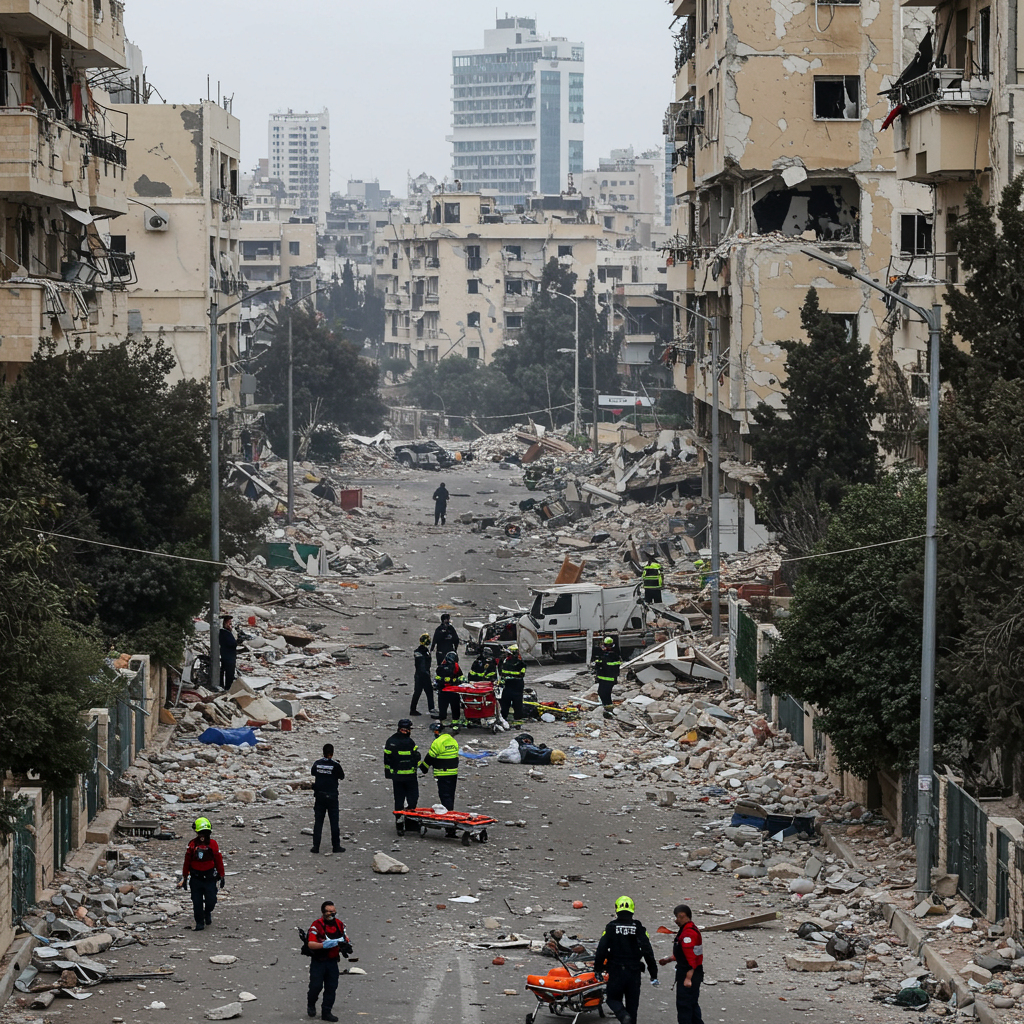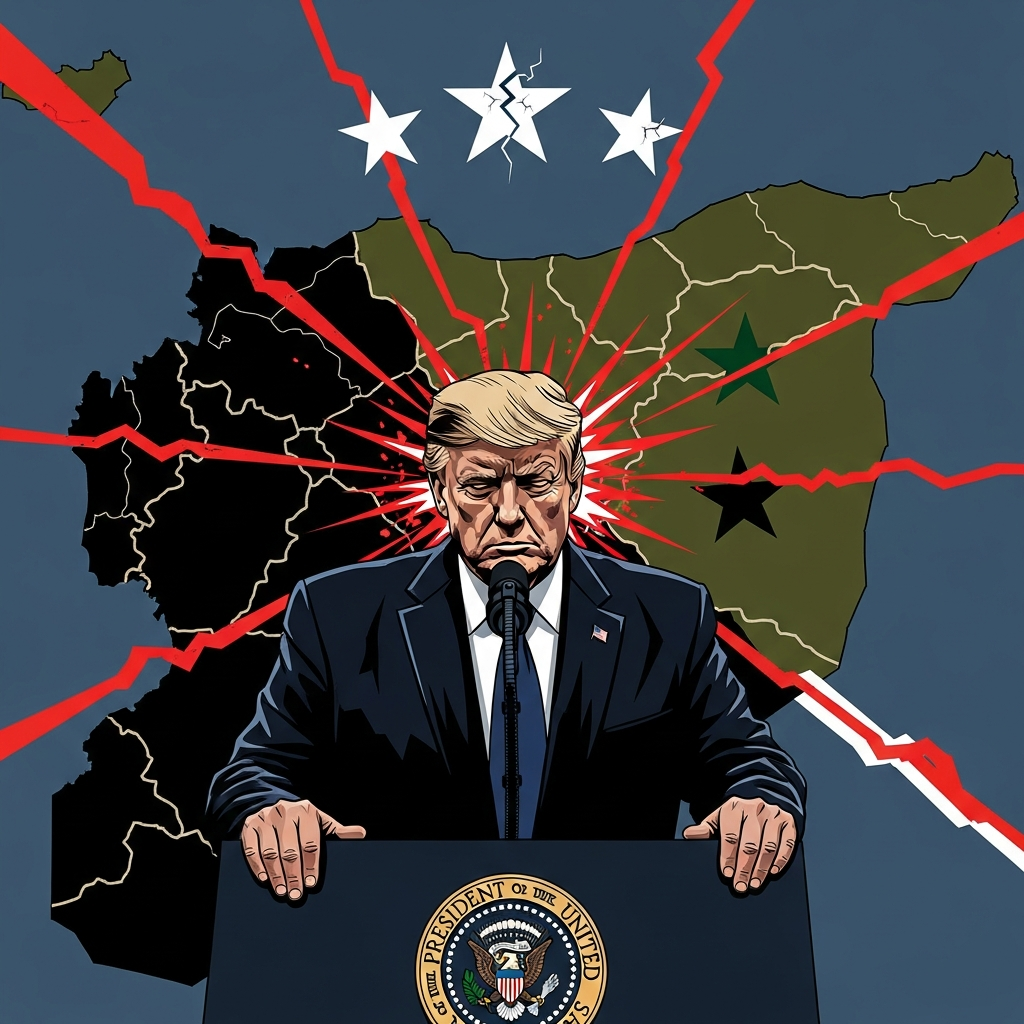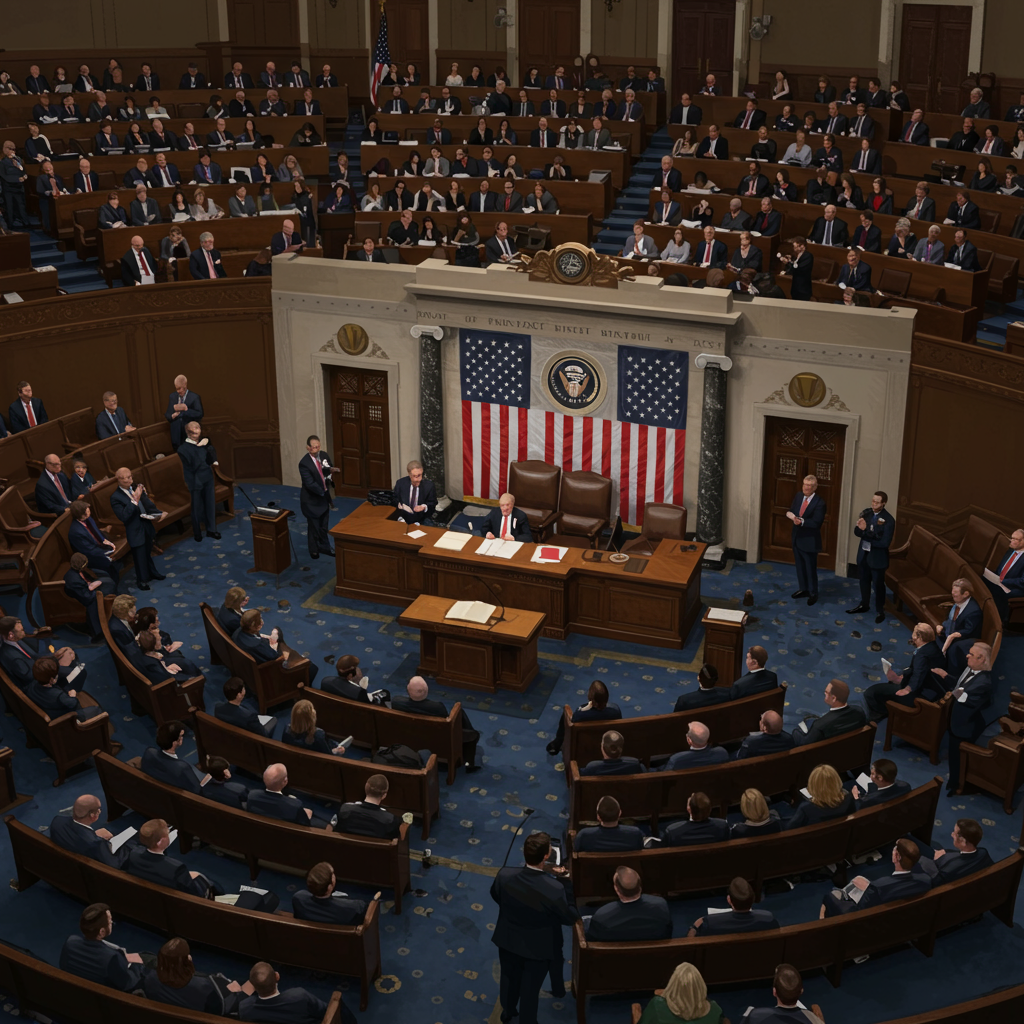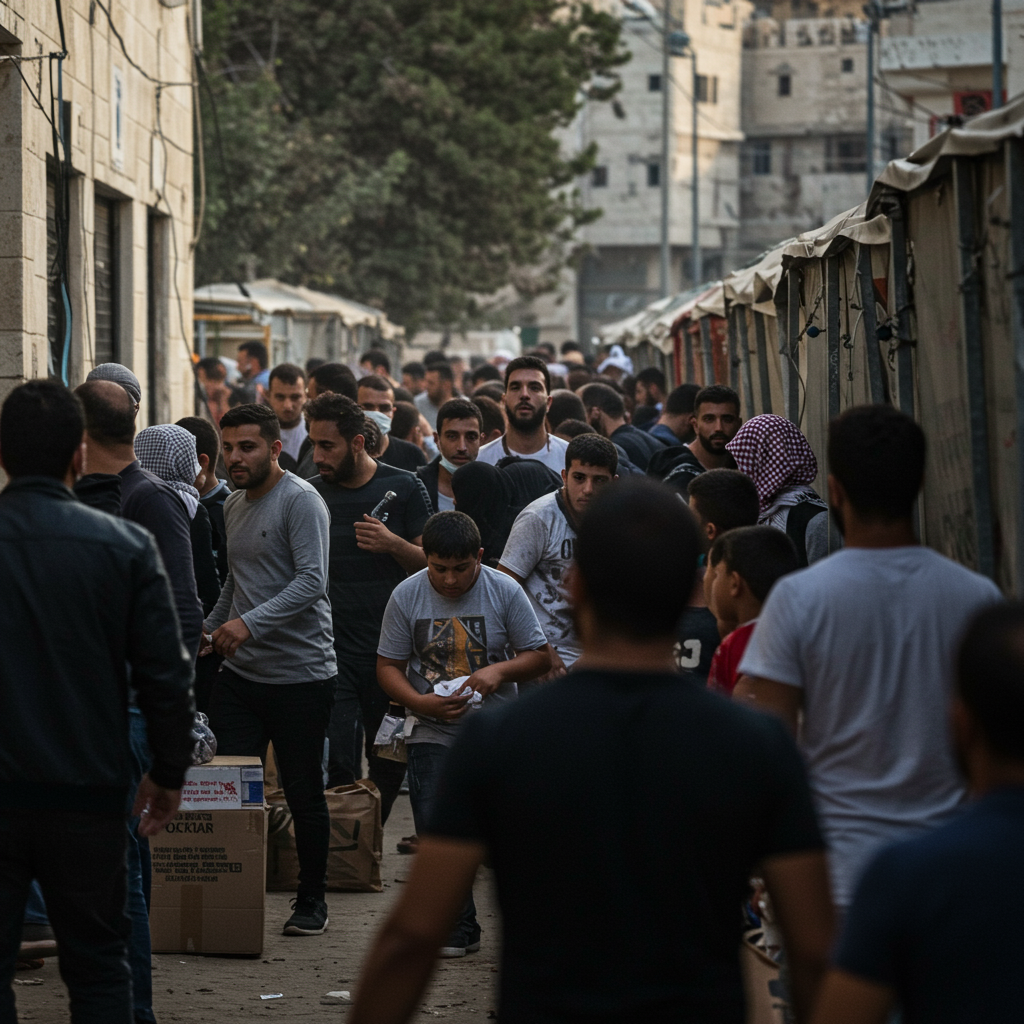Israel-Iran Conflict Escalates as Missile Strikes Kill and Injure
The volatile conflict between Israel and Iran entered its fourth consecutive day with a new barrage of missile strikes launched by Iran against cities across Israel. The attacks, which occurred overnight and early Monday, resulted in fatalities and widespread damage, deepening fears of a broader regional war.
Emergency services in Israel reported that the strikes killed at least four, and potentially five people, and left dozens wounded. Among the deceased were elderly individuals. Rescue teams were active across affected areas, including searching for people potentially trapped under rubble after a missile struck a residential building in Petah Tikva, near Tel Aviv. The Magen David Adom (MDA) emergency service confirmed evacuating 87 injured people to hospitals, with injuries ranging from severe facial trauma to lighter wounds. The northern city of Haifa also saw significant damage and injuries.
Air raid sirens blared across central Israel as Israeli defense systems intercepted many of the incoming projectiles. However, police highlighted that the targeting of civilian areas, exemplified by the destruction in Petah Tikva, indicated a deliberate intent to cause harm among the population. Civilians in cities like Tel Aviv and Bat Yam spent hours in crowded shelters, grappling with damage to their homes and businesses and the grim reality of a rapidly escalating conflict.
Retaliation and Escalation Cycle
The latest Iranian strikes were framed by Tehran as retaliation for Israel’s extensive military actions against Iranian infrastructure and leadership in the preceding days. The conflict sharply intensified following a surprise Israeli attack on Friday that reportedly targeted Iran’s nuclear program facilities and military command. This was followed by further Israeli strikes on Sunday, including one that killed a senior intelligence chief within Iran’s Revolutionary Guard. Israeli forces also targeted surface-to-surface missile sites and Iran’s crucial oil and gas sector, causing large fires.
Iran’s state media claimed the country fired around 100 missiles in this latest wave, and the Revolutionary Guard vowed that subsequent strikes would be “more forceful, severe, precise and destructive.”
In response to the Iranian attacks, the Israel Defense Forces (IDF) stated its fighter jets struck multiple targets in Iran, including ten command centers belonging to the Quds Force, an elite branch of Iran’s Revolutionary Guard responsible for external operations. The IDF also reported striking a refuelling plane at Mashhad Airport in eastern Iran and hitting 250 sites within Iran on Sunday, including what appeared to be government buildings in Tehran in verified footage.
Casualties on Both Sides
The human toll of the conflict is mounting. While Israel reported four or five deaths and numerous injuries from the latest Iranian strikes, reports from Iran paint a grim picture of casualties from Israeli actions. Iran’s Health Ministry and various Iranian media sources have provided varied and difficult-to-verify figures, but collectively they indicate hundreds of deaths since Friday, with Iranian officials claiming a high percentage were civilians. Rights groups, however, dispute official Iranian figures, suggesting the actual civilian death toll may be significantly higher. Specific reports mention military personnel, nuclear scientists, women, and children among the casualties in Iran.
International Concern and Stalled Diplomacy
The escalating conflict is dominating international attention and was a key focus for G7 leaders meeting in Canada. World leaders expressed concerns about the potential for the violence to spiral into a broader Middle East war. Goals outlined by G7 members included preventing Iran from developing nuclear weapons, ensuring Israel’s right to self-defense, preventing further escalation, and creating space for diplomacy.
Despite international appeals for restraint, diplomatic efforts appear challenging. Reports suggest Iran has told mediators it is unwilling to negotiate a ceasefire while under Israeli attack. The United States has confirmed its military helped Israel shoot down Iranian missiles but has denied direct participation in Israel’s strikes, though reports regarding potential US vetoes of Israeli plans have surfaced and been denied by Israeli officials. US President Donald Trump expressed hope for a “deal” while also noting that sometimes nations “have to fight it out.” Russia has also suggested it could play a mediating role.
As the conflict enters its fourth day, both sides appear committed to further action, with the risk of wider regional instability growing.




